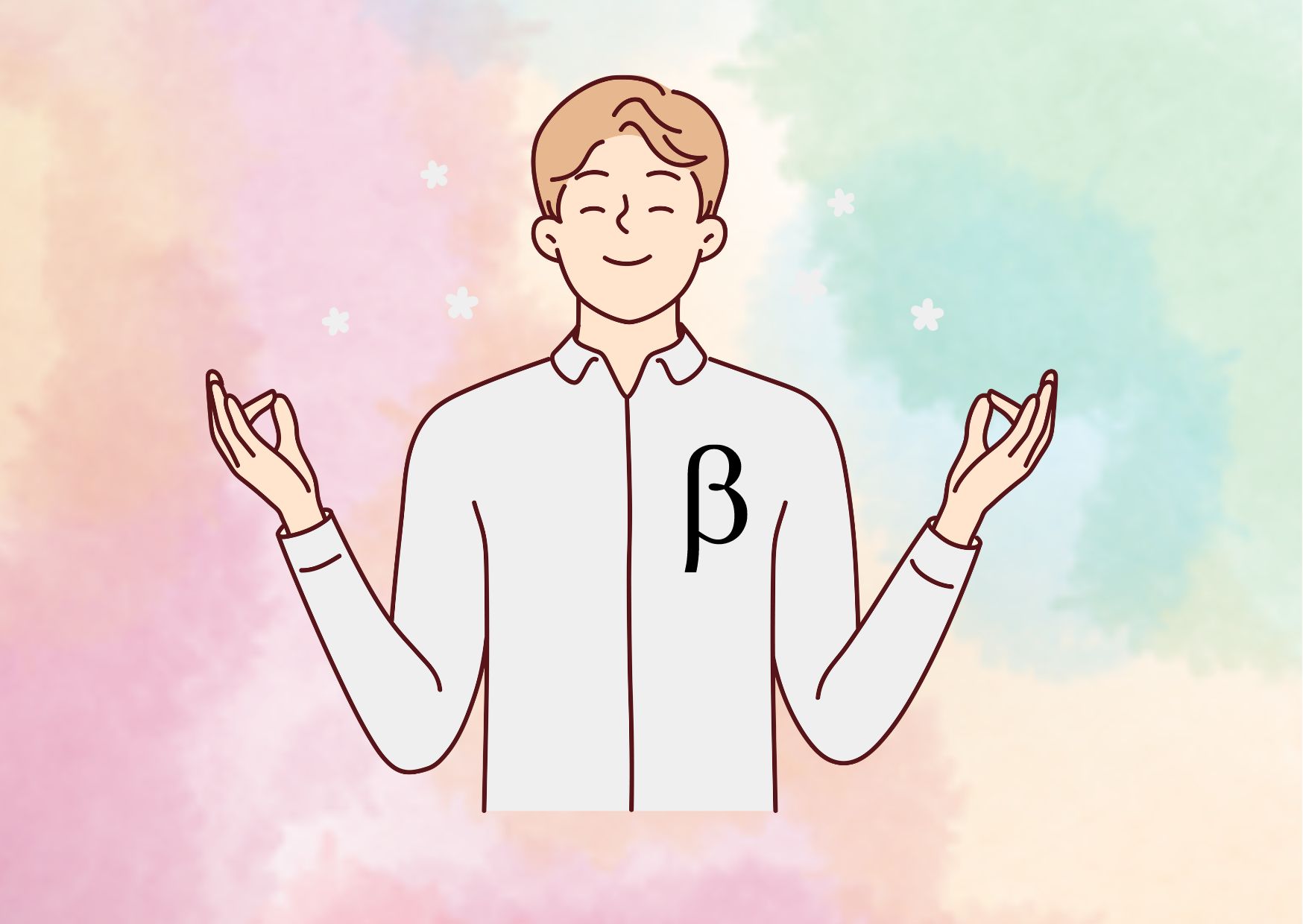Understanding the Beta Male: Traits, Behaviors, and Misconceptions
In the world of male social dynamics, the term “beta male” has gained significant popularity, often used to describe a specific set of personality traits and behaviors. Beta man are typically characterized as shy, introverted individuals who lack confidence and assertiveness, commonly perceived as followers rather than natural leaders. They are often portrayed as nervous in social situations, fearing judgment from others, and struggle to exhibit the charisma and charm associated with their “alpha male” counterparts.
However, the concept of categorizing males into distinct hierarchies like “alpha,” “beta,” “sigma,” and “omega” is widely debated, with many experts considering it an oversimplification of the complex and nuanced spectrum of human personalities and social interactions. This article delves into the concept of the beta male, exploring its traits, associated behaviors, misconceptions, and the implications it holds in various aspects of life, particularly in romantic relationships.
What is a Beta Male?
The concept of a “beta male” refers to a man who is traditionally seen as subservient, weak, passive, and a pushover. Unlike the aggressive, outgoing “alpha male” who directly approaches women, a beta man is characterized as more introverted and observant, preferring to let the woman make the first move.
Key Traits of a Beta Male
- Avoidance of Confrontation: Beta males tend to be more laid-back and avoid confrontation or intense debates. They don’t like to compete with other men for women’s attention and prefer a “meet in the middle” approach rather than being the aggressor.
- Shyness and Lack of Confidence: Beta males are often described as shy, introverted individuals who lack confidence in themselves. They are constantly plagued by insecurities and self-doubts, which can make it difficult for them to commit to things out of fear of failure.
- Follower Mentality: Beta men are typically seen as followers rather than natural leaders. While they may be liked by people, they are often looked at condescendingly, and women tend to “friendzone” them.
- Social Anxiety: Beta males tend to be nervous in social situations because they are afraid of being judged by others.
- Sensitivity and Emotional Intelligence: On a positive note, beta men are described as more sensitive, attuned to relationships and people’s feelings, and emotionally intelligent, though still masculine.
| Alpha Male | Beta Male |
| Aggressive | Passive |
| Outgoing | Introverted |
| Confident | Insecure |
| Leader | Follower |
| Assertive | Submissive |
It’s important to note that the terms “alpha male” and “beta male” are pseudoscientific slang terms derived from animal ethology, and their application to humans has been widely criticized by scientists as misogynistic and stereotypical. These terms oversimplify the nuances of human personalities and relationships, and categorizing men into rigid archetypes can be harmful and inaccurate.
Characteristics of a Beta Male
Personality Traits
Beta men are often characterized by a set of distinct personality traits that shape their behavior and interactions. Some key traits include:
- Shyness and Introversion: Beta males tend to be shy, introverted individuals who prefer to stay in the background. They are often uncomfortable in social situations and worry about being judged by others, leading them to avoid the spotlight.
- Lack of Confidence and Assertiveness: Beta males are plagued by insecurities and self-doubts, which can make it difficult for them to commit to things out of fear of failure. They lack the confidence and assertiveness that is often associated with alpha males, making them appear passive and submissive.
- Follower Mentality: Rather than taking on leadership roles, beta men are typically seen as followers. They prefer to let others take the lead and make decisions, often relying on their partners or friends for guidance.
- Non-Confrontational: Beta men tend to avoid confrontation and intense debates. They are more laid-back and prefer to find a middle ground rather than engaging in aggressive or competitive behavior.
- Emotional Intelligence and Sensitivity: Despite their perceived weaknesses, beta males are often described as emotionally intelligent and sensitive. They are attuned to relationships and people’s feelings, making them caring and affectionate partners.
Social and Professional Characteristics
In addition to their personality traits, beta males exhibit certain characteristics in their social and professional lives:
- Mediocre Work Output: Beta men are not typically driven by ambition or goals. They tend to put in mediocre effort and are content with staying within their comfort zone, leading to average or subpar work outputs.
- Dislike of Competition: Beta males have a strong aversion to competition, whether in their personal or professional lives. They are satisfied with their current position and do not feel the need to compete with others or convince them to adopt their thoughts or opinions.
- Passive in Relationships: In romantic relationships, beta males often assume a passive role. They are hesitant to express their feelings openly and prefer to let their partners take the lead in decision-making.
- Team Players: While they may not be natural leaders, beta males are often good team players. They are not demanding and prioritize the interests of others over their own, making them valuable contributors in group settings.
Advantages and Challenges
While the beta men archetype is often portrayed negatively, it is essential to recognize that these individuals possess unique strengths and challenges:
Advantages
- Loyalty and Reliability: Beta males are known for their loyalty and reliability, making them trustworthy partners and friends.
- Emotional Availability: Their emotional intelligence and sensitivity make beta males emotionally available and expressive, which can be appealing to those seeking a caring and affectionate partner.
- Stability and Family Orientation: Beta males prioritize stability and family, often making them better fathers and providers in the long run.
Challenges
- Lack of Assertiveness: Beta males may struggle to assert themselves and communicate their needs effectively, leading to potential conflicts or resentment in relationships.
- Dependence on Others: Their tendency to rely on others for decision-making and guidance can make beta men appear overly dependent or lacking in independence.
- Perceived Weakness: While some may appreciate their non-confrontational nature, beta males may be perceived as weak or lacking in confidence by those who value assertiveness and dominance.
It’s important to note that these characteristics are generalizations, and individuals may exhibit a combination of traits from different archetypes. The key is to recognize and appreciate the diversity of personalities and avoid oversimplifying or stereotyping individuals based on these labels.
Signs of a Beta Male in Relationships
In romantic relationships, beta males often exhibit distinct behaviors and tendencies that set them apart. Here are some common signs of a beta man in relationships:
1. Passive and Submissive Nature
Beta males tend to take a passive role in relationships, allowing their partners to take the lead in decision-making and other aspects of the relationship. They may struggle to assert their needs and preferences, often acquiescing to their partner’s demands or deferring to their partner’s wishes.
2. Difficulty with Emotional Expression
Beta men frequently have difficulty processing and expressing their emotions effectively. They may appear emotionally distant or struggle to communicate their feelings openly, leading to misunderstandings or emotional disconnection with their partners.
3. Seeking Validation and Approval
Beta men often have a low opinion of themselves and seek constant validation and approval from their partners. They may rely heavily on their partner’s reassurance and struggle with self-confidence, which can create an unhealthy dynamic in the relationship.
4. Avoidance of Confrontation
One of the hallmarks of a beta male in a relationship is their aversion to confrontation or conflict. They may go to great lengths to avoid disagreements or difficult conversations, even if it means compromising their own needs or desires.
5. Delegation of Decision-Making
Beta males frequently delegate decision-making responsibilities to their partners, as they may feel uncomfortable or ill-equipped to make important choices themselves. This can lead to an imbalance in the relationship, where one partner bears the burden of most decisions.
6. Fear of Failure and Commitment
Beta males may struggle with commitment and tend to quickly abandon relationships, jobs, or projects out of fear of potential failure or rejection. This lack of perseverance can create instability and uncertainty in their romantic partnerships.
7. Ending Up in the “Friend Zone”
Due to their passive nature and hesitance to initiate romantic advances, beta men often find themselves in the “friend zone” with potential partners. They may struggle to transition from a platonic relationship to a romantic one, as they may lack the confidence or assertiveness to make their intentions clear.

